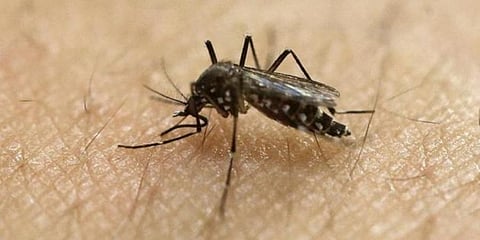

THIRUVANANTHAPURAM: One more Zika case has been confirmed in Thiruvananthapuram, with the mosquito-borne virus being found in a 73-year-old woman patient under treatment at a private hospital in the city. The other five samples sent in the batch turned out to be negative. The district has reported 19 Zika cases so far since Thursday.
The health department has set up Zika testing facilities at medical colleges in Thiruvananthapuram, Alappuzha, Thrissur and Kozhikode. It has procured 2100 testing kits from the National Institute of Virology, Pune. The infection is mostly asymptomatic and deaths are rare. However, it has a severe impact on pregnant women. It causes abortion or complications in pregnancy. The child born of an infected mother could have physical disabilities. Infection in children and elderly could result in nerve disorders.
The first case was detected in a pregnant woman in the district on Thursday. It was followed by 13 more cases among health workers in a private hospital the next day, prompting the state to chart out an action plan against the disease with a special focus on pregnant women. The disease is considered to have a severe impact on pregnant women up to four months of pregnancy. “Hospitals have been directed to conduct a Zika test on people with symptoms such as fever, rashes and body pain,” said the
health minister Veena George.
Zika is detected using blood and urine samples through an RT-PCR test (real-time reverse transcription polymerase chain reaction test). NIV Pune has recommended the use of blood samples. Five millilitres of blood of a suspected Zika virus infected person is collected and the serum separated from it for conducting the RT-PCR test. A polymerase chain reaction (PCR) test is performed to detect genetic material from a specific organism, such as a virus. In the case of Covid-19, nasal swabs are used to conduct the PCR test.